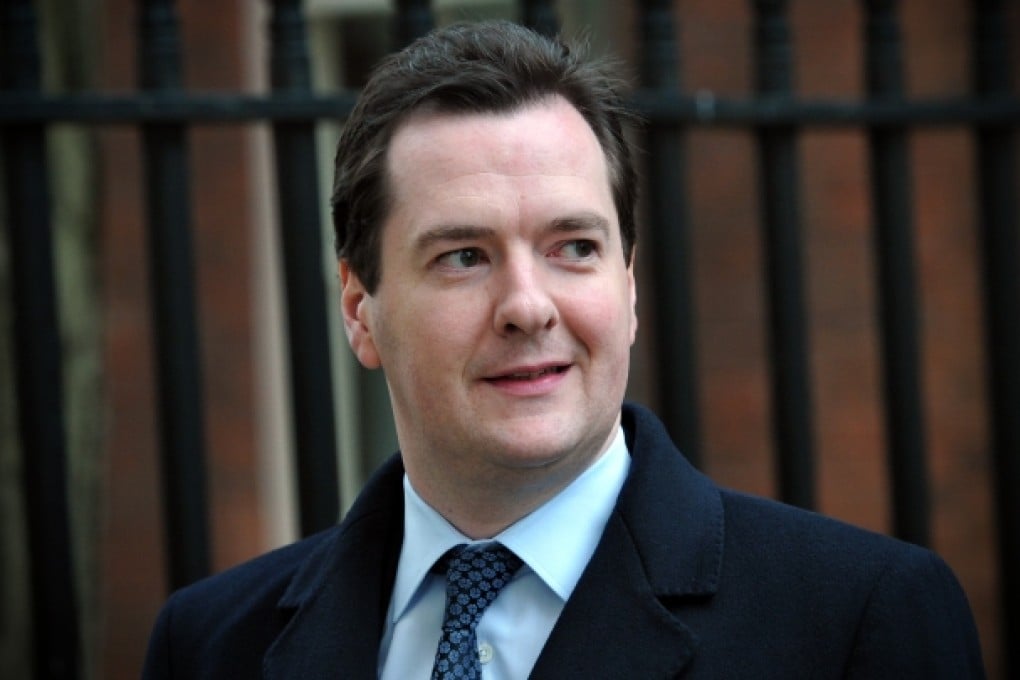More spending cuts for Britain, but austerity pill is sugared
UK Chancellor of the Exchequer spells out 11.5 billion pounds (HK$137.2 billion) in cuts for the 2015/16 fiscal year

British finance minister George Osborne has unveiled spending cuts to try to tame the country’s big public deficit, but promised to reinvest some of the money saved to counter criticism of excessive austerity.
In a speech to parliament, interrupted by jibes from opposition Labour party lawmakers, Osborne spelled out 11.5 billion pounds (HK$137.2 billion) in cuts for the 2015/16 fiscal year, including steps to trim the welfare budget.
Tens of thousands of British pensioners living abroad in warm climates and unemployed foreign jobseekers in Britain unable to speak English are among those who stand to lose out.
Osborne said the budgets of the justice ministry and local government department had been cut by a nominal 10 per cent, but said the government planned to spend 3 billion pounds on affordable housing projects.
The debate over the cuts, which will take effect just weeks before the general election in 2015, draws the battle lines for that vote as Labour and the ruling Conservatives try to prove their economic credentials to the public.
“While recovery from such a deep recession can never be straightforward, Britain is moving out of intensive care - and from rescue to recovery,” Osborne told parliament.